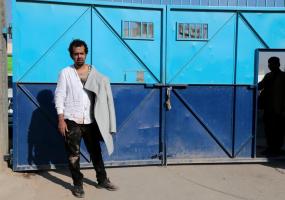Reuters Institute Summer School on Comparative Qualitative Research on Journalism and News Media - 11-12 September 2017, Oxford
17 Mar 2017
Some of the most important research on journalism and news media has been based on qualitative studies, including in-depth interviews, ethnography, historical studies, and other qualitative methods. Such work has generated lasting empirical insights as well as many of the foundational concepts in the academic study of media and communications.
Qualitative research has, however, tended to produce insights which are less 'portable' to new research questions and contexts. Too often the impact of this kind of scholarship is limited because findings are highly specific to the case and/or country studied, because engagement with theoretical work is not explicit, or because the logic of generalisation and the standards of validity have not been made clear.
These hurdles are especially pronounced in the vital emerging domain of comparative international media research. Well-designed qualitative work — whether carefully situated case-studies or explicitly comparative projects — has the potential to significantly advance our understanding of, for example, the economic and professional forces reshaping news production today — changes which are playing out very differently in different organizations and media systems. But we have so far seen far less systematically comparative and internationally oriented qualitative research on journalism and news media than what has been pursued by, for example, researchers focused on content analysis, role perceptions, and the like.
The purpose of this two-day summer school for advanced doctoral students and early career researchers, hosted by the Reuters Institute for the Study of Journalism at the University of Oxford, is to explore the unique promise of qualitative methods for comparative scholarship in journalism and media/communications and to help the participants connect their individual projects to wider discussions to in order to increase their substantive contribution and impact.
Through a combination of seminars lead by Oxford-based researchers and workshop discussions of work-in-progress from the participants, the aim is to:
- Significantly advance our shared understanding of the methodological issues involved in advancing genuinely comparative and internationally-oriented qualitative research on journalism and news media,
- Explicitly engage with theoretical discussions that can help structure such work and clarify its contribution (beyond describing interesting and sometimes intrinsically important cases), most notably recent work drawing on institutional theory and science and technology studies.
- Help the participants think about their own individual research as contributing to a collective and cumulative attempt to understand the evolution of news and journalism, and to identify potential collaborators for cross-country studies.
Seminars at the summer school will be led by Lucas Graves, Rasmus Kleis Nielsen, and Annika Sehl.
All participants will be provided with a reading list in advance for the seminars and will be asked to submit a draft article or chapter that they would like to workshop and get feedback on from the organizers and the other participants at the summer school.
The participation fee is £149 per person, covering the summer school itself as well as lunch both days and dinner at an Oxford college. The participation fee does not cover transport and accommodation (which each participant will be responsible for organizing on their own).
We will accept a maximum of 12 participants for the summer school to ensure that we have an intimate and constructive forum for discussion and that everyone can get detailed feedback on their work. We will aim for a diverse group to advance our goal of building towards more comparative, international qualitative research on journalism and news media.
To apply to take part, please send an abstract of no more than 500 words outlining the central research question, empirical basis, and driving hypotheses and intellectual stakes of the work that you would like to present to Philippa Garson at philippa.garson@politics.ox.ac.uk no later than May 31. Please direct practical questions to her, and substantive questions about the program to Lucas Graves at lucas.graves@wisc.edu.
We will notify those accepted before the end of June.
About the summer school organisers
Lucas Graves is Assistant Professor in the School of Journalism and Mass Communication at the University of Wisconsin-Madison.
Rasmus Kleis Nielsen is Director of Research at the Reuters Institute for the Study of Journalism at the University of Oxford and Editor-in-Chief of the International Journal of Press/Politics.
Annika Sehl is Research Fellow at the Reuters Institute for the Study of Journalism at the University of Oxford.
About the Reuters Institute
The Reuters Institute for the Study of Journalism is based in the Department of Politics and International Relations at the University of Oxford. The Institute was launched in November 2006 and developed from the Reuters Fellowship Programme, established at Oxford more than 30 years ago. The institute is committed to connecting timely and rigorous research from a range of different disciplines to the substantial issues facing journalism and news media around the world.



